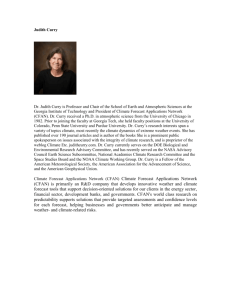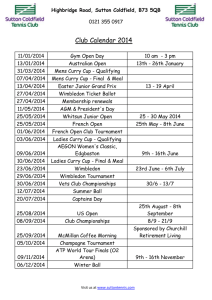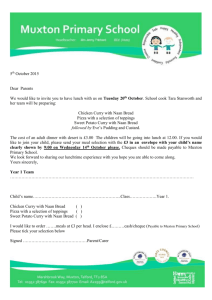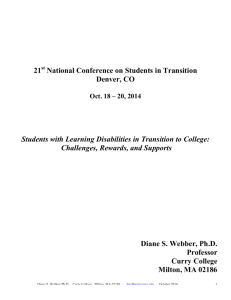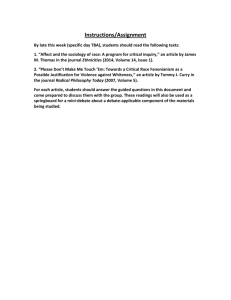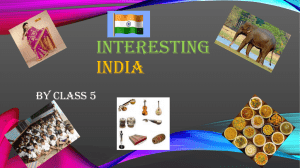Informative Speech Outline
advertisement
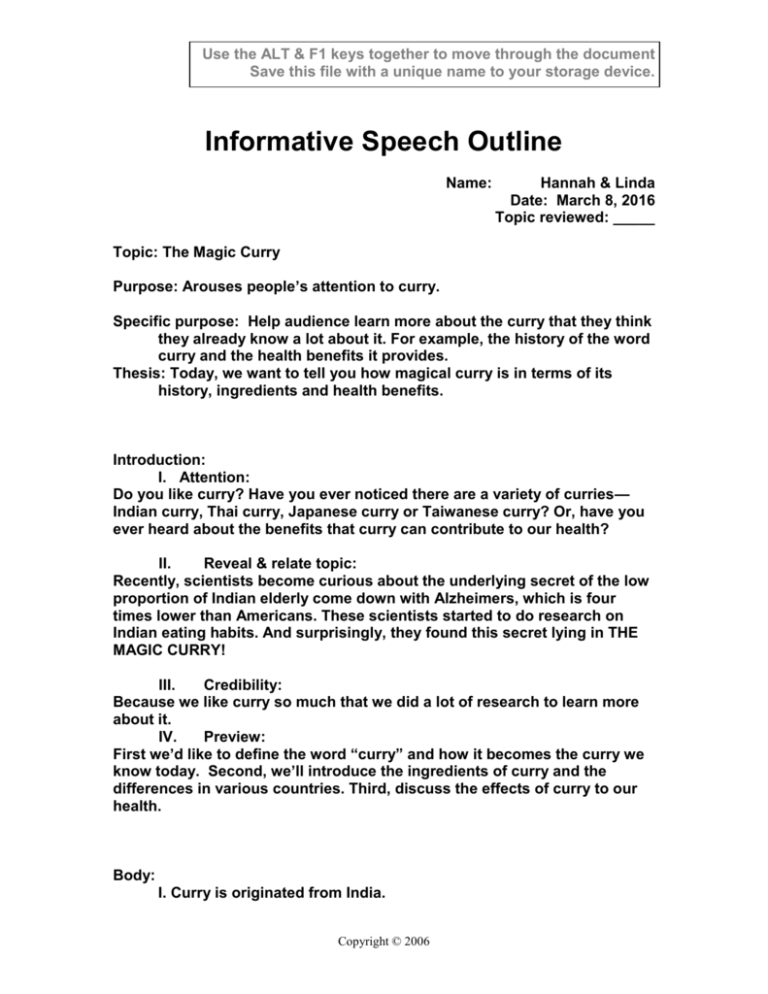
Use the ALT & F1 keys together to move through the document Save this file with a unique name to your storage device. Informative Speech Outline Name: Hannah & Linda Date: March 8, 2016 Topic reviewed: _____ Topic: The Magic Curry Purpose: Arouses people’s attention to curry. Specific purpose: Help audience learn more about the curry that they think they already know a lot about it. For example, the history of the word curry and the health benefits it provides. Thesis: Today, we want to tell you how magical curry is in terms of its history, ingredients and health benefits. Introduction: I. Attention: Do you like curry? Have you ever noticed there are a variety of curries— Indian curry, Thai curry, Japanese curry or Taiwanese curry? Or, have you ever heard about the benefits that curry can contribute to our health? II. Reveal & relate topic: Recently, scientists become curious about the underlying secret of the low proportion of Indian elderly come down with Alzheimers, which is four times lower than Americans. These scientists started to do research on Indian eating habits. And surprisingly, they found this secret lying in THE MAGIC CURRY! III. Credibility: Because we like curry so much that we did a lot of research to learn more about it. IV. Preview: First we’d like to define the word “curry” and how it becomes the curry we know today. Second, we’ll introduce the ingredients of curry and the differences in various countries. Third, discuss the effects of curry to our health. Body: I. Curry is originated from India. Copyright © 2006 Use the ALT & F1 keys together to move through the document Save this file with a unique name to your storage device. A. The word curry is an anglicized version of the Tamil word kari. B. The British people’s influence on their colony. (transition) Now you understand that the word curry means “sauce.” Let’s move on to have a closer look at the ingredients in curry. II. The basic ingredients of curry and how it transforms into different styles to suit its own culture and taste. A. Different countries’ style of curry B. The variety of spices used can be extensive but the commonest are chilli, cumin, coriander and turmeric. Other common ingredients are yoghurt, cream and ground nuts. (transition) After learning about the ingredients in curry, we are going to introduce the magical substance that makes curry a healthy food for us. III. The benefit of curry to our health results from the ingredient—turmeric. A. The function of Curcumin B. Alzheimers C. Colorectal cancer D. Liver disease (transition) [Click here and type your tip off] Conclusion: I. Now we know what curry is and what ingredients it concludes. The most important is the potential of the curcumin in curry. II. Enjoy eating the wonderful, fantastic, awesome and healthy curry! References: Hint: To help remember how to properly list your references go to http://www.sinclair.edu/facilities/library/research/index.cfm Copyright © 2006 Use the ALT & F1 keys together to move through the document Save this file with a unique name to your storage device. David W Smith. “Definition and History of Curry” 1998 <http://www.curryhouse.co.uk/faq/define.htm> Shereen Jegtvig. “Is there an ingredient in curry that can help with Alzheimers?”13 Feb. 2008 < http://nutrition.about.com/od/askyournutritionist/f/curry.htm>. “Curry spice ‘kills cancer cells’” BBC News. 28 Oct. 2009 <http://news.bbc.co.uk/2/hi/health/8328377.stm> Sylvia Booth Hubbard. “Turmeric Fights Liver Damage” 15 Jun. 2010 <http://www.newsmaxhealth.com/health_stories/Turmeric_Fights_Liver_Da m/2010/06/15/321870.html> Audience analysis information: In the space below discuss how have you tailored your speech for this particular audience and situation. Include specific demographic, environmental and audience expectation information you considered important to this speech. I My audience includes…[Type demographic audience analysis here] My environment involves…[Type environment analysis information here] Audience expectations for this speech include …[Type response here] Choices I've made include…[Type response here] Copyright © 2006 Use the ALT & F1 keys together to move through the document Save this file with a unique name to your storage device. Peer comments: Some instructors will ask for classmates to review outlines. If you have been invited to offer feedback to a classmate, include your comments in the space below. Keep in mind that constructive feedback is best when it is descriptive, specific, problem-focused, balanced and caring. [Click here and type constructive comments for your classmate.] Copyright © 2006
